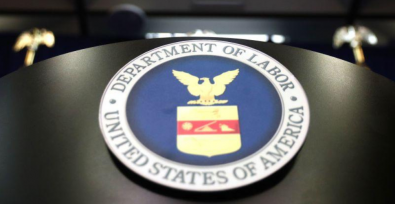A 16-year-old boy from Guatemala was tragically killed in July 2023, when he was sucked into a deboning machine during his late-night shift at a meat processing plant in the US.
It was the third death at the same facility since 2020.
The Department of Labor recorded that violations of child labor laws in the US rose by 37% in 2022, and the number of minors unlawfully employed in hazardous occupations increased by 26%.
Whilst these cases and statistics are reminiscent of bygone days when child labor protections were largely non-existent, here we are well into the 21st century facing an undeniable regression of child protections in the workplace.
Does this situation sound familiar? Campaigners in the 1900s spoke of similar cases across the country. The National Child Labor Committee, and Lewis Hines’ powerful photographs of children working, often in dirty and dangerous conditions, are widely credited with turning around children’s experience of work in the United States.
A suite of legislation culminating in the Fair Labor Standards Act of 1938 and a change in attitudes led to a significant reduction in child labor.
A clear social standard was established that work cannot interrupt a child’s development; it should not interfere in their education, health or wellbeing and it was certainly totally unacceptable for that work to be dangerous or so exploitative as to be effectively a modern form of slavery.
The National Child Labor Committee shut its doors just seven years ago in 2017, its mission seemingly complete. Sadly, it seems they were wrong. Without this watchdog in place, it has been too easy for states to start rolling back the protections the National Committee worked so hard to establish.
Since 2022, 10 states [and counting] have introduced or passed legislation that enables minors to receive a lower minimum wage, work longer hours, and permit their employment in hazardous occupations.
Under Iowa’s new laws, 14 and 15-year-olds are permitted to do certain types of work that were previously banned, including work in industrial laundry services, freezers, and meat coolers, and operating heavy machinery such as power saws or joining demolition projects.
What has changed? Notably, the children exploited today in the United States are largely new migrants who have crossed the southern land border unaccompanied. They are pushed into accepting work in the face of pressure to earn to support not only themselves but their families who are pushed back across the border. As is the case in most modern slavery situations, marginalization and discrimination permit this exploitation to be tolerated.
The situation in the United States is not unique. Progress in tackling child labor globally has been stagnating since 2016. It is estimated that 1 in 10 children worldwide are in child labor today, representing an increase of millions. Of those, a shocking 12 million children are exploited in conditions so extreme that they meet the criteria of modern slavery.
In today’s context, where protections are being eroded instead of strengthened, coupled with economic and environmental pressures and a lack of political will for change, the numbers both in the US and globally are likely to increase exponentially.
Target 8.7 of the Sustainable Development Goals (SDGs) is to end modern slavery among children by 2025, and for all by 2030. This dream of the United Nations from 2015 is now becoming distant. For the sake of children everywhere, we cannot afford to let go of the dream; we need to revive the campaign to protect children from exploitation and never waver from demanding a society that does not seek to exploit its children, wherever they are or are from.







Freedom United is interested in hearing from our community and welcomes relevant, informed comments, advice, and insights that advance the conversation around our campaigns and advocacy. We value inclusivity and respect within our community. To be approved, your comments should be civil.